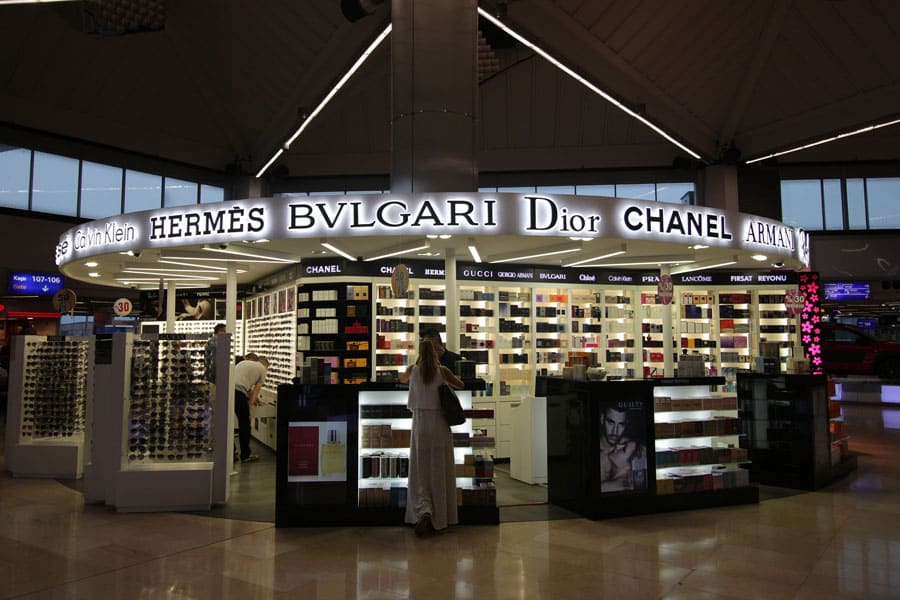At a time of increasing globalisation, the French cosmetics industry has seen rapid expansion internationally. To successfully export your brand and break into foreign markets, any brand must necessarily call for translation services. More than simply ad translators, linguists must now be veritable experts in multilingual communications and marketing consultants. Discover how a cosmetics brand can rely on the expertise of specialised translators to successfully grow internationally.
1. Multilingual communication
From simple ad translations…
The globalisation of the economy has led to an increase in the development of marketing strategies and a rise in commercial communication, all throughout the world. We rely more and more on translators to contribute to the broadcasting of promotional messages on the international stage. The principal mission of these translators is limited to the transmission of a promotional message from one language to another. This is primarily exclusive to marketing text (brand name, slogan, commercial arguments).
… to multilingual communication
Very quickly, translators will be confronted with a disparity between the message’s target and the type of equivalency that is being sought. And it’s from this that the idea of adaptation is born. The translator then reflects on the pragmatic finality of the message and translates with a precise goal in mind, generally an effect to be produced for the consumer, based on a particular argument. The translator adapts the interest from the source to the target.
Successful multilingual communication
Successful multilingual communication responds to multiple criteria. The first is obvious, and crucial for demanding communication, quality:
- calling on specialised translators, who are experts in their field and native speakers of the target language.
The following criteria require a perfect knowledge of the target market:
- the adaptation of editorial content to the cultural and societal particularities of the target market,
- the retransmission of the message in an idiomatic style, all the while adhering to the DNA and values emblematic of your brand.
2. Adapt the communication to your target
Your foreign audience may have a different relationship with beauty and cosmetic products than we do. Each country, each region of the world has its own view of beauty and its own cultural sensibilities. In Asia, we privilege quality, in Latin America, masculine beauty, in the United States, organic, in the Middle East and Africa, nature above all.
It is therefore crucial to adapt in order to avoid errors in your communication. The example provided by L’Oréal is a perfect illustration of this fact. The group has always refused to impose a global vision to the concept of beauty, preferring instead to establish a connection between beauty and its local connotations. By relying on their knowledge of these particularities, L’Oréal can offer bespoke beauty products, adapted to the various lifestyles, cultures, and buying power of the target audience, whether in France or on the opposite end of the world. It has become its brand image.
In order to avoid any communication errors, one tool specifically is available to translators, a multilingual semantic study.
semantic study
The brand name, first and foremost, must be the object of particular attention. It should be easy to pronounce and, above all, must not have any negative connotations within the target market. Names, slogans, and marketing hooks may miss their mark due to a translation not adapted to the target. Beware also of false equivalencies in translation.
To avoid these fateful errors in translation and adaptation, the first step must be to carry out a multilingual semantic study. This consists of determining the semantic pertinence of editorial content. It is built on 3 pillars:
- Contextual analysis
Study of the target audience and markets in order to define the concerned languages and understand their cultural specificities. - International research
A kind of audit of our international network to evaluate the pertinence of semantic choices. - Analysis and summary report
The following points are determined:- the meaning of the words in the targeted language
- the relationship between the signifier and the signified, the true and hidden meanings
- any related connotations; positive or negative, obvious or ambiguous, objective or subjective, contextualised or not
3. Experts for a global accompaniment
Rewriting and transcreation
For a brand to remain respectful of local customs and particularities and catch the attention of your target, it is sometimes necessary to reformulate the initial message. Adapting to the socio-cultural context of your target markets is imperative. Specialised linguists, backed by solid experience in cosmetics, are able to tailor your message from an analysis of your brand, your DNA, and a predetermined brief.
Transcreation reveals a creative dimension and can be exploited for any media (print or digital, audio or video).
To break the boundaries of a narrow national market, major brands haven’t hesitated to ride the e-commerce wave, an essential element in the internationalisation process. In 2015, the beauty market in e-commerce represented 6% of the global market. Among the brands who have succeeded in their digitalisation: L’Oréal Paris with the Makeup Genius app, which allows users to test makeup through augmented reality. Sephora with their YouTube tutorial videos, publishing makeup advice using their brand’s products.
Your translation agency as a partner in creation and consultation…
More than a simple translation service, some agencies position themselves as veritable experts in the sector, offering global accompaniment. From the creation of your product name, which differentiates you from the competition and conveys your corporate DNA, to the creation of attractive packaging, translation agencies take on the role of PR firms, utilising their professional networks and constantly on the lookout for new trends across the four corners of the Earth. A translation agency and expert in the cosmetics sector must also be perfectly cognisant of the usages and regulations of the industry.
…and in translation project management
For a brand with foreign subsidiaries, the management of multiple translation projects can appear to be a colossal and time-consuming task. Some translation agencies also propose a service to be an interface for project management and to coordinate the process externally.
Successful internationalisation of a cosmetic brand requires a successful communication campaign. Expert translators in the field are now essential for commercial campaigns with international reach. A good translation agency will be able to take your brand beyond what is offered by a simple semantic adaptation.
Read more: Do you have a project, international ambitions? Surround yourself with a quality team







